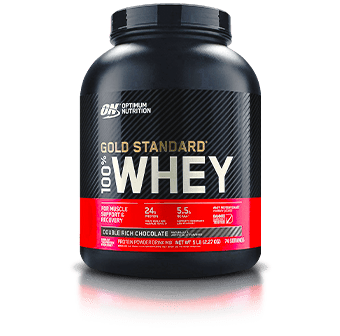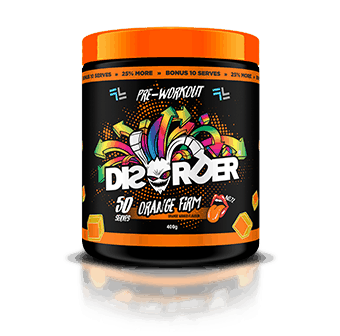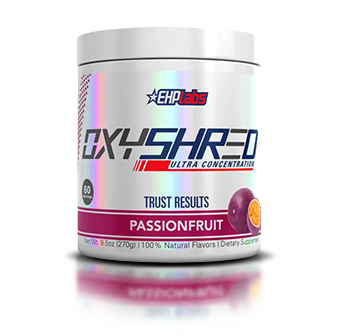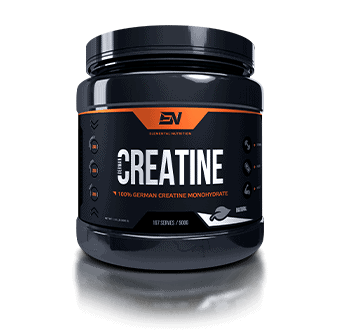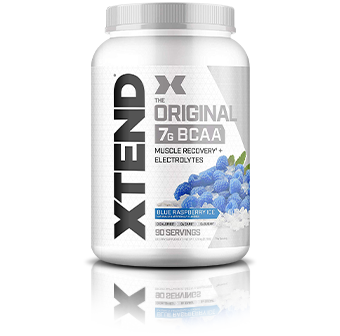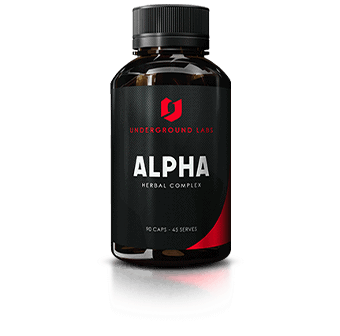Free Shipping - 48hrs Only | Use Code: FREESHIP
Ends 26/04 11:59PM AEST Min spend $79

Here at Mr Supplement, we’ve been curating and supplying the best protein powders in Australia since 2004. Since then, we’ve grown into a leading supplier of protein, health and wellbeing products across the country, helping people transform their bodies and minds to achieve their fitness goals.
Today, we offer an extensive range of the best protein supplements in Australia. Whether you’re after protein powder, whey protein powder blends, fat loss protein powder or are looking for protein bars, cookies and snacks to supplement your lifestyle, we can help. Additionally, our range of products also includes:
Mass Gainer Protein Powder
— Perfect for when you’re looking to make gains.Whey Protein Isolate (WPI)
— We think we’ve got the best WPI in Australia!Hydrolysed Whey Protein Isolate (HWPI)
— Recover faster and improve your gains.Whey Protein Concentrate (WPC)
— Discover the best whey protein in Australia.Casein Protein Powder
— A slow-digesting protein.Natural Protein Powder
— Perfect if you’re lactose-intolerant.Plant-Based Protein Powder
— A vegan-friendly protein optionCarbohydrate Supplements
— Get that extra boost of energy you need.Beef Protein Powder
— For when whey just isn’t enough in your protein!Colostrum Powder
— An enriched supplement that’s ideal for any serious workout enthusiast.
You can view our complete range of brands right here online; we’re always keen to support local companies, so you’ll see that we’ve got a great selection of Australian protein brands in addition to international brands. We also feature reviews on the best protein powders in Australia and customer testimonials to help you choose the best protein powder for your needs. And if you’re looking for a specific product, make sure that you get in touch with us today — one of our friendly team members will be more than happy to help with your questions.
We want to provide you with the best Australian protein powders and more. We’re also proud of the quality of products that we stock, which is why we’ve created our list of the top 10 protein powders in Australia. If you’ve been looking for Australia’s best protein powders, read on to discover more.
Optimum Nutrition 100% Gold Standard Whey
Containing a blend of different whey varieties, Optimum Nutrition 100% Gold Standard Whey is one of the top protein powders in Australia. It’s something of an all-rounder protein powder, primarily geared at weight maintenance or loss and exercise support, rather than being intended to specifically help build muscle and bulk. With low carbs and high protein content, you’ll be able to support your workout while also shifting unwanted kgs in the process.
It’s ideal as a post-workout shake, thanks to its inclusion of hydro-whey hydrolysate protein, and can also easily be used as a meal substitute. Available in a range of flavours that includes Extreme Milk Chocolate, Double-Rich Chocolate, Rocky Road, Banana, Vanilla Ice Cream & Delicious Strawberry, there’s a taste to suit everyone’s palette.
Serving size: 31g
24g of protein in every serve
Over 5g of BCAAs per serve
Over 3g carbs per serve
Elemental Nutrition Shredding Matrix
Looking for a protein powder that can assist you with your weight loss goals? Elemental Nutrition Shredding Matrix is one of the best lean protein powders in Australia. It’s a post-workout mix that’s ideal for building and maintaining lean muscle while still shredding away unwanted kilos and body fat. Featuring dedicated weight-loss ingredients like teacrine, dynamine, L-carnitine, caffeine & DIM, Shredding Matrix helps to reduce your food cravings and helps you feel full for longer while still being low in carbs and fats.
Designed to be taken up to four times a day and to act as a meal replacement, Elemental Nutrition Shredding Matrix also contains a mix of fast and medium-acting proteins to both meet your nutritional needs and keep you feeling full. You’ll be able to hit your own personal goals more quickly and get into the shape you want for yourself.
Serving size: 30G
22g of protein in every serve
1.5g carbs per serve
Pure Supps 100% Whey
Pure Supps Pure Whey is arguably the best-value protein powder in Australia. Offering a premium blended whey powder without the premium price tag, Pure Supps 100% Whey offers an excellent all-around choice for anyone looking to lose weight, gain muscle or supplement their nutritional intake.
One of the key features of Pure Supps Pure Whey is the way the protein has been processed; in many instances, manufacturers utilise protein that has been purified via heat and chemicals. In turn, this can impact the nutritional value of the protein supplement itself. By contrast, Pure Whey uses protein powder that has been purified via treatments that use nothing more than cold water — this aids in preserving the efficacy of protein and providing you with the nutrition you need.
Serving size: 30g
24g of protein in every serve
6.6g of BCAAs per serve
1.5g carbs per serve
Elemental Nutrition Anabolic Mass
If you’re looking for the best protein powder for muscle gain in Australia, it’s hard to go past Elemental Nutrition Anabolic Mass. It features a great blend of protein and carbs alike (though minimal sugar), it’s an optimum powder to help you bulk up and create the massive physique you’ve been looking for.
Boosting natural testosterone production and enhancing muscle repair, Elemental Nutrition Anabolic Mass is also available in a variety of delicious flavours. Whether you prefer Vanilla Ice Cream, Chocolate Mudcake, Choc Honeycomb, Caramel Sea Salt or Banana Peanut Butter, you’re sure to be able to find a flavour to suit your palette. So get ready to get huge with the Anabolic Mass protein powder.
Serving size: 100g
26.9g of protein in every serve
6.6g of BCAAs per serve
60.4g carbs per serve
Rule 1 R1 Protein
If you’re not using the best protein powder for the job, you’re not going to get the best results. That’s where Rule 1 R1 Protein comes in — it’s a fast-absorption protein designed to be taken immediately after you’ve just finished a workout. What makes that any different to other post-workout powders, you might be wondering? Essentially, it’s to boost your recovery time and enable you to get back to working out harder, sooner. The more quickly you can get additional protein absorbed into your body, the faster the repair process can begin, and the more your body can benefit.
This powder is made with super-pure whey isolate and whey hydrolysate — and that’s about it! Rule 1 is keenly aware that you buy protein powder for protein, and that’s why there are no superfluous fillers in the recipe. It’s intended to give you exactly what you need.
Serving size: 29.2g
25g of protein in every serve
Over 6g of BCAAs per serve
1g carbs per serve
Optimum Nutrition Serious Mass
When you’re looking for the best protein powder in Australia to get swole and develop serious bulk, it’s tough to go past Optimum Nutrition Serious Mass. Designed for the dedicated lifter and gym freak, it’s a gigantic serve of protein, carbs, vitamins and minerals in one hit. In tandem with an effective exercise program and other healthy eating, this calorie-dense protein powder will provide you with the nutrition you need to get in shape and bulk up.
Able to be used as a protein-rich meal replacement or as a post-workout shake, it’s a powerful tool for those who are at the top of their game and looking to stay there. In a word, Serious Mass is the ideal tool for those who are keen to get serious.
Calories per serve: 1250
50g of protein in every serve
250g + of carbs per serve
25 vitamins & minerals
Rule 1 R1 Whey Blend
Looking for a powder that’s high-protein and low-carb? One that’s ready to drink any time of day or night? R1 Whey Blend may be the right protein shake for you. Getting enough protein can be a tricky process when you’re trying to balance it with eating right, getting enough exercise and balancing all the other aspects of your life. That’s where having some of the best protein powder in Australia handy can help — it’s an effective way to supplement your nutritional needs and help you develop both healthier eating and exercise habits in the process.
Available in a range of yummy flavours like Salted Caramel, Vanilla, Chocolate Fudge, Choc Biscuit, Choc Hazelnut and Frozen Banana, you’ll always have a delicious treat handy to supplement your protein intake. You can even get creative and mix up your own flavour combinations too!
Serving size: 33g
24g of protein in every serve
3g carbs per serve
BSN Syntha-6
Creative flavours that have hit the market aside, whey protein powders often have a distinctive taste that can be a little off-putting for people new to it. But now there’s a blended power that has finally shown how it can be tackled the right...whey. A blended protein that features a mix of whey, milk and egg proteins, BSN Syntha-6 is a smooth and delicious protein powder that can help you maximise lean muscle mass while still being delicious at the same time.
Syntha-6 also features fibre to help keep you regular — addressing one of the other most common issues facing regular protein powder users in the process. Available in 6 different flavours, BSN Syntha-6 is the perfect way to supplement your eating program throughout the day.
Serving size: 44g
22g of protein in every serve
2g carbs per serve
5g of fibre per serve
Elemental Nutrition Xtreme Whey
Perfect for any athlete or weight trainer who’s looking to up their game — or simply needs a powder that can keep up with them, Xtreme Whey is an ideal supplement. Low in fat and carbs, while also featuring a variety of additives to enhance your performance and improve digestion, Xtreme Whey is an excellent protein powder for anyone looking to build lean muscle and reduce their body fat.
In contrast to Elemental Nutrition’s Extreme WPI, Xtreme Whey is also suitable for any time of the day — so you’re able to drink it when it suits your lifestyle, rather than needing to utilise it at specific times of the day that may not be convenient for you. All-round, it’s an ideal protein powder for getting yourself to the next level and keeping yourself there once you’ve arrived. It’s designed for performance.
Serving size: 30g
24g of protein in every serve
1.6g carbs per serve
Max’s Anabolic Night
Famous even outside of the athletic community for its striking cartoon logo, Max’s products have been a fixture on store shelves for decades. There’s a reason for that, too — they rank among Australia’s best protein powders. Max’s Anabolic Night is no exception, designed to help you get shredded even while you sleep. Helping you rest more easily during the night, it’s also designed to help fuel your muscles with protein as you rest, helping them recover and getting you ready for the next workout. You’ll be able to drift off, safe in the knowledge that with the right workouts, you’ll be able to leap straight back into getting jacked the next morning.
Serving size: 30g
24.5g of protein in every serve
2.1g carbs per serve

